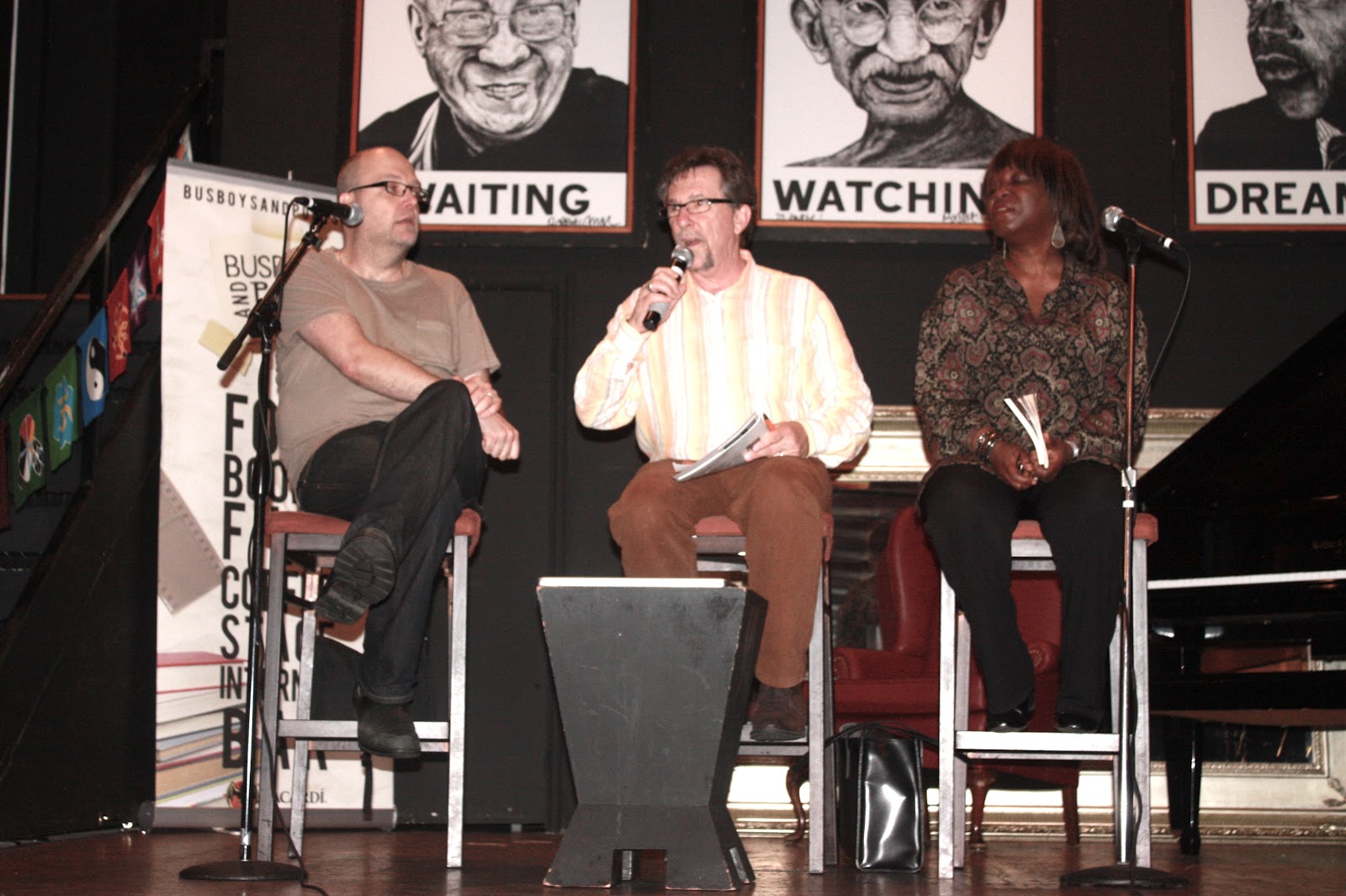The first workshop of Friday for me was titled “Writing the Disaster,” held in the Langston Room of Busboys & Poet. It was moderated, & recorded for subsequent radio play by Marc Steiner of WEAA 88.3FM, Baltimore. The participants were Patricia Smith, whose 2008 book of poems Blood Dazzler was about the human & environmental aftermath of Hurricane Katrina, & Mark Nowak, whose book Coal Mountain Elementary (Coffee House Press, 2009) confronts the Sago & Sunjiawan mining disasters.
| M. Nowak, M. Steiner, P. Smith |
The back & forth discussion, with trenchant questions from the audience to expand the topic, soon centered on the contrasting methods of the 2 poets. Mark talked about gathering the actual stories of workers about the closing of Ford plants in the US & South Africa (see my earlier Blog) giving the workers a place to tell their own tales. Patricia, on the other hand, had no personal connection to New Orleans, but used, as she said, what she had learned as a poet to get close to the Katrina story, the poems as conversation. Ultimately it seemed that both are needed: the real stories from the workers themselves, & the practicing poet’s skills to channel or transform these stories, to reach audiences that otherwise would not hear them.
Both poets stressed that it was important not to be boxed in by the type of writing, to lose the “attachment to genre” (as Mark put it, explaining that he does “labor history with line-breaks”), & as Patricia said, “we’re all story tellers.”
Patricia also shared some poems in her quietly intense performance style, one in the voice of an undertaker whose clients are increasingly young men killed by bullets, another, “Still Life with Toothpick.”
The afternoon workshop I attended was titled “Poet’s Forum: How Political Engagement Affects the Writing Process” & was held in a conference room in the Thurgood Marshall Center on 12th Street, NW. One might call it the Beloit Poetry Journal panel, as it gathered 3 poets, Douglas Kearney, Khaled Mattawa & Minnie Bruce Pratt from the BPJ‘s 2012 Split This Rock Chapbook & was co-chaired by editors John Rosenwald & Lee Sharkey. The poets were asked to describe their “leap from political engagement/insight to the poem on the page.”
| D. Kearney, K. Mattawa, M. B. Pratt, J. Rosenwald, L. Sharkey |
Each poet read briefly & commented on their poems, beginning with Minnie Bruce Pratt reading “Turning the Switch Off” (from the Chapbook), & another about caring for her ill partner, “What Do I Do Next?”
Khaled Mattawa read an excerpt from his poem in the Chapbook, “After 42 Years” on the capture & death of Moammar Gadhafi. He described literature “as a space for contrariness & a space for conscience,” also, poets as ones “capturing the echoes.”
Douglas Kearney‘s poem in the Chapbook is in 5 parts, each dealing with separate aspects of the way “black babies” are perceived, focused on the recall of Costco’s “Lil Monkey” doll. He read the sections titled “We don’t operate in that kind of thinking,” the dramatic section, “We have a really diverse, family operated company …” with it’s “performative typography” (see my previous Blog on his reading) contemplating the question of Evil, & the first section, again bringing up the spirit of Trayvon Martin.
There’s something implicitly counter to the recent AWP Conference (Academic Writers Project) here at the more plebeian Split This Rock, although the comparison sometimes became explicit, as it did at the first panel I attended when Philip Metres & Jennifer Karmin described an un-official human mic at the last day of the AWP Conference in Chicago. However, every once in a while I did hear what I would call an “AWP question,” asking about such (non) things as “authenticity versus innovation,” etc., though these moments were rare. If Split This Rock is anything it is diverse.
Following the afternoon sessions (most of) we headed over to the Supreme Court building behind the Capitol for Split This Rock‘s customary confrontation of the seat of power. At the first Split This Rock we demonstrated at the White House, the last time we were at the Capitol, now we were at the 3rd Chamber of government, the Judiciary. Our message was directly counter to the 2010 Supreme Court decision in the Citizens United case: we proclaimed “Money is not speech! Poetry is speech.” And we gathered to create a Cento, a group poem composed of random lines of poetry of no more than 12 words recited person (real people, not corporations) by person. I spoke Walt Whitman’s grand line from the end of “Song of Myself,” “I sound my barbaric yawp over the roofs of the world.” You could hear the hammer ring against the pillars of power.






